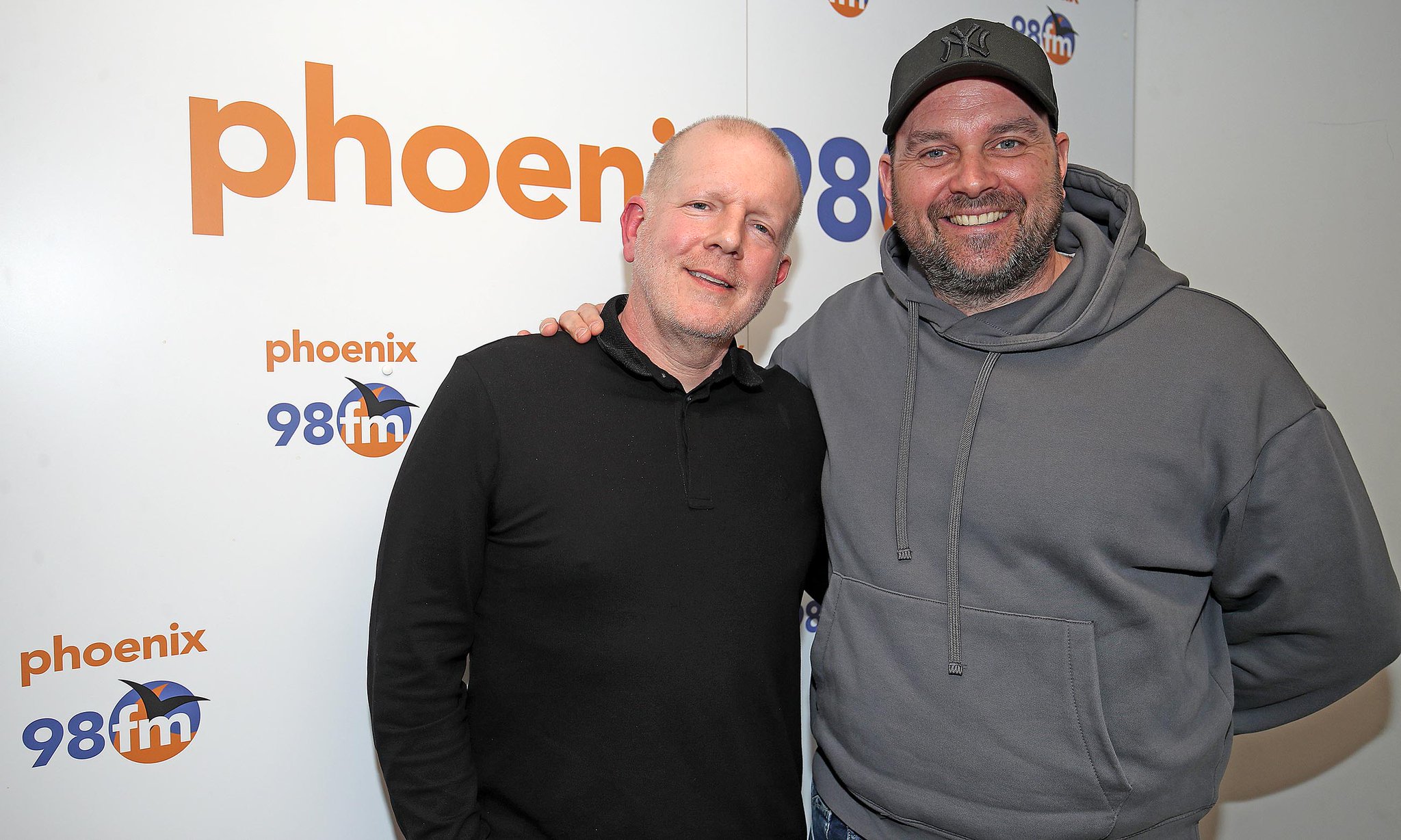 This week on phoenix I covered local news, weather and events. I also interviewed Steve Willoughby, Director of Home Instead Care in Brentwood. HomeInstead sounds to me the sort of senior care service that I approve of. Having worked in 3 different so called ‘care sector establishments,’ this sounds like it thankfully has a difference, a holistic care service encompassing companionship. This is essential for human health and wellbeing. Steve communicates personally to the staff and matches carers to clients which is good to hear as personality types differ and when a person gets on with the person they are caring for, they are likely to offer much better standard of care. Carers also need to be supported and appreciated and Steve comes across as the type of manager you would feel comfortable in speaking to and/or raising any concerns. Listen to the full interview here: Steve Willoughby – speaking about Home Instead Care
This week on phoenix I covered local news, weather and events. I also interviewed Steve Willoughby, Director of Home Instead Care in Brentwood. HomeInstead sounds to me the sort of senior care service that I approve of. Having worked in 3 different so called ‘care sector establishments,’ this sounds like it thankfully has a difference, a holistic care service encompassing companionship. This is essential for human health and wellbeing. Steve communicates personally to the staff and matches carers to clients which is good to hear as personality types differ and when a person gets on with the person they are caring for, they are likely to offer much better standard of care. Carers also need to be supported and appreciated and Steve comes across as the type of manager you would feel comfortable in speaking to and/or raising any concerns. Listen to the full interview here: Steve Willoughby – speaking about Home Instead Care
Home Instead Senior Care Brentwood, Unit 9, Suite B, Stubbers Farm, Mountnessing Road, Blackmore, Essex, CM4 0NX 01277822858
Nutrition Tips for Exercising and Running
 The London Marathon 2012 has just been completed by thousands of runners and walkers. I am sure they had been training for months leading up to the event and increasing their fitness levels in advance. Some people begin a running or training routine and begin learning about their nutrition later. Regardless of when you began a running or including an exercise routine into your weekly schedule, I hope you find the following tips useful and reap the benefits from adopting some of these techniques:
The London Marathon 2012 has just been completed by thousands of runners and walkers. I am sure they had been training for months leading up to the event and increasing their fitness levels in advance. Some people begin a running or training routine and begin learning about their nutrition later. Regardless of when you began a running or including an exercise routine into your weekly schedule, I hope you find the following tips useful and reap the benefits from adopting some of these techniques:
- Always have something to eat when you get up, even if you can only manage something small like a yoghurt or a fruit and milk smoothie. Something is better than nothing. If you train or run on a regular basis your body does even more repair work whilst you sleep. As soon as the body starts to move around and begin the day it needs calories to fuel that activity.
- Get into the habit of eating regularly, even on your rest days. Granted you might not need quite as many calories on your rest days, but your blood sugar levels still need to remain stable over the course of the day.
- Snacking between meals is a good thing. This will help you have a constant supply of energy and it also means than you can be more flexible with the time that you run or exercise during your day. The choice of snack is dependent on what you are doing and what time of day it is.
- Consume some calories containing protein and carbohydrate within 30 minutes of finishing exercise. Your body begins repairing and adapting as soon as you finish vigorous training sessions. It may take time and you may have to start small but begin to train your body to expect food upon completion of your exercise routine or run. You will start to look forward to this more and more and it’s a good incentive to finish!
- If you eat your pre-workout meal 1-2 hours before you begin exercising you may find that eating a little fast fuelling energy type of food about 15 minutes prior to beginning optimises your performance and energy levels. I always eat something along the lines of chocolate and a piece of fresh fruit before exercise, some people just drink some fruit juice or have a coffee. I believe if you can eat, eat, but if you can’t tolerate food, drink food!
- For endurance training, or exercise lasting more than an hour, you need
 somewhere between 30 and 60 grams of carbohydrate to fuel your muscles to keep working at such an intensity. You will need to chose calories that you can tolerate during, or in between exercises, and ones that provide a fast form of fuel. They should contain natural ingredients, rather than consisting of chemicals and preservatives. Good examples include homemade bars and fruit juices and organic dried fruits, juices & chocolates.
somewhere between 30 and 60 grams of carbohydrate to fuel your muscles to keep working at such an intensity. You will need to chose calories that you can tolerate during, or in between exercises, and ones that provide a fast form of fuel. They should contain natural ingredients, rather than consisting of chemicals and preservatives. Good examples include homemade bars and fruit juices and organic dried fruits, juices & chocolates. - Eat for optimal mood and performance. Monitor your weight and mood on a regular basis. You can check your weight fortnightly and make a mental note or keep a diary of your mood and energy levels on a daily basis. If you start to feel tired and you feel your performance is suffering it is likely you are not eating enough nutrients so listen to your body.
- Take a bottle of water with you everywhere you go and monitor the colour of
 your urine. It should never be smelly or a dark colour. The clearer the better!
your urine. It should never be smelly or a dark colour. The clearer the better! - Eating well, resting enough and getting the right kind of exercise requires getting to know your body. Everyone is exercising for health but also for their personal needs. There isn’t a one size fits all and the nutrients you need in abundance during one period of your life, you may require in smaller amounts for other parts of your life. The same is true for exercise. Just because you used to run doesn’t mean you should always run. Life changes, you change and so does the latest research and evidence so don’t stay stuck in one place.
22 minutes into the recording – Running Nutrition Tips Click here to listen again.


































